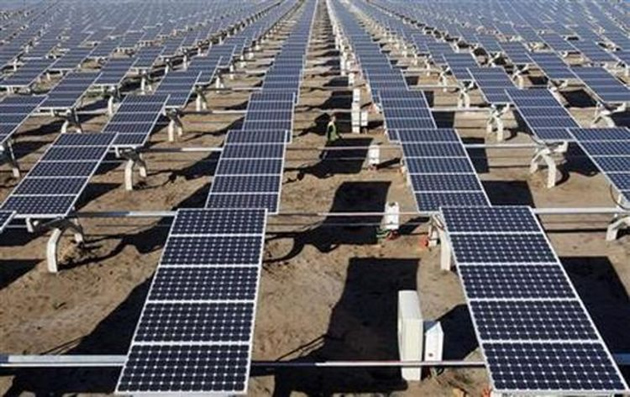SPB’s short lists four for solar projects

Golden Sibanda Senior Business Reporter
THE State Procurement Board has short-listed four out of six companies to undertake installation of 300 megawatt solar power projects, as more details about one of the final four short lists, rejected by the procurer, emerged.
The Herald Business is reliably informed that three companies from the four finalists — ZTE Corporation, China Jiangxi for International and Economic Co-operation, Number Seventeen Metallurgical Construction and Intratrek Zimbabwe — will each win a site.
Three sites namely Insukamini (Bulawayo), Munyati and Gwanda were put out to tender and initial estimates show that the project will cost $570 million.
At one point, procurer, Zimbabwe Power Company, disqualified ZTE Corporation for not complying with specifications on the tender form, it emerged.
Sources said that ZTE Corporation made it to the final four, where one of the four finalists is certain to walk away empty handed, despite being rejected earlier for indicating transmission costs ($578 000) for Lot 1 and ($3,4 million) for Lot 2.
Eventually, ZPC recommended China Jiangxi International Corporation and Number Seventeen Metallurgical Construction, which qualified for price evaluation as bidders with the lowest price per lot, which SPB was advised of.
“Based on best advantage principle to ZPC as the procurer and considering the differentials in cost, Intratek Zimbabwe, China Jiangxi and Number 17 Metallurgical were recommended as the successful bidders,” said a source.
In its evaluation, ZPC had noted that the request for proposals stated that bidders were supposed to submit comprehensive bill of quantities, but excluding price detail.
“Any price inclusion in the technical envelope would lead to automatic disqualification, and this was largely the reason ZTE was rejected,” the source added.
It is alleged that ZTE Corporation included, in its request for proposal, forms of tender with prices for Lot 1 (Insukamini), and Lot 3 (Munyati), China Jinagxi included forms for Lot 1 and Lot 3 while another of the initial six bidders, Afriven Investments, quoted prices for Lot 2 (Gwanda) in the funding envelope.
As such, questions have been raised over the manner SPB handled the tenders, which were once cancelled after the board disagreed with bidders on prices, especially regarding relentless push to ensure ZTE made the final list of four.
Correspondence between SPB and ZPC also reveals effort has been expended on interrogating why ZTE Corporation had been left out, despite the fact that reasons for rejection of the Chinese bidder’s proposal were made clear.
In a letter to ZPC, SPB principal officer, Mr Cledywn Nyanhete demanded justification for rejection of ZTE bid, which ZPC attributed to ZTE’s
failure to comply with the requirement for price breakdown of the transmission works. “Demonstrate with detailed price schedule how ZTE Corporation did not quote for transmission component of the project. Juxtapose their incomplete quotation against those considered as compliant to the same requirements.”
In response ZPC, which is power utility Zesa Holdings generation unit said “the bidder was unresponsive to minimum requirements of project of the nature, ‘turnkey project’”, hence its earlier decision to disqualify ZTE Corporation.
“ZPC found it difficult to see how the bidder planned to evacuate the power from the proposed power station if the scope excludes such component,” said ZPC managing director Engineer Noah Gwariro in his response to SPB’s inquiry.
SPB overruled the recommendation of ZPC on the grounds that ZTE Corporation and China Jiangxi had passed their technical and funding submissions evaluation and also the fact Zimbabwe faced serious power deficits.
This is despite the fact that some SPB procurement staff had agreed with recommendations by ZPC, which were short down by the executive at the tender board who also allegedly claimed that ZTE had the backing of the Presidency.
There apparent bungling of the 300Mw solar power projects tenders come at a time Zimbabwe is facing crippling power shortages, which Government is trying to resolve through various initiatives, including expanding Kariba and Hwange.
However, Kariba South Hydro, for an additional 300Mw and Hwange Thermal 7 and 8 for another 600Mw, will take a minimum of 42 months each after financial conclusion, yet solar power projects could take only 9 months.
Zimbabwe requires on average 2200Mw at peak of demand, but is currently only able to generate about 1 200Mw, leaving a deficit that expedited completion of the solar projects could come in handy to plug the shortfall.









Comments